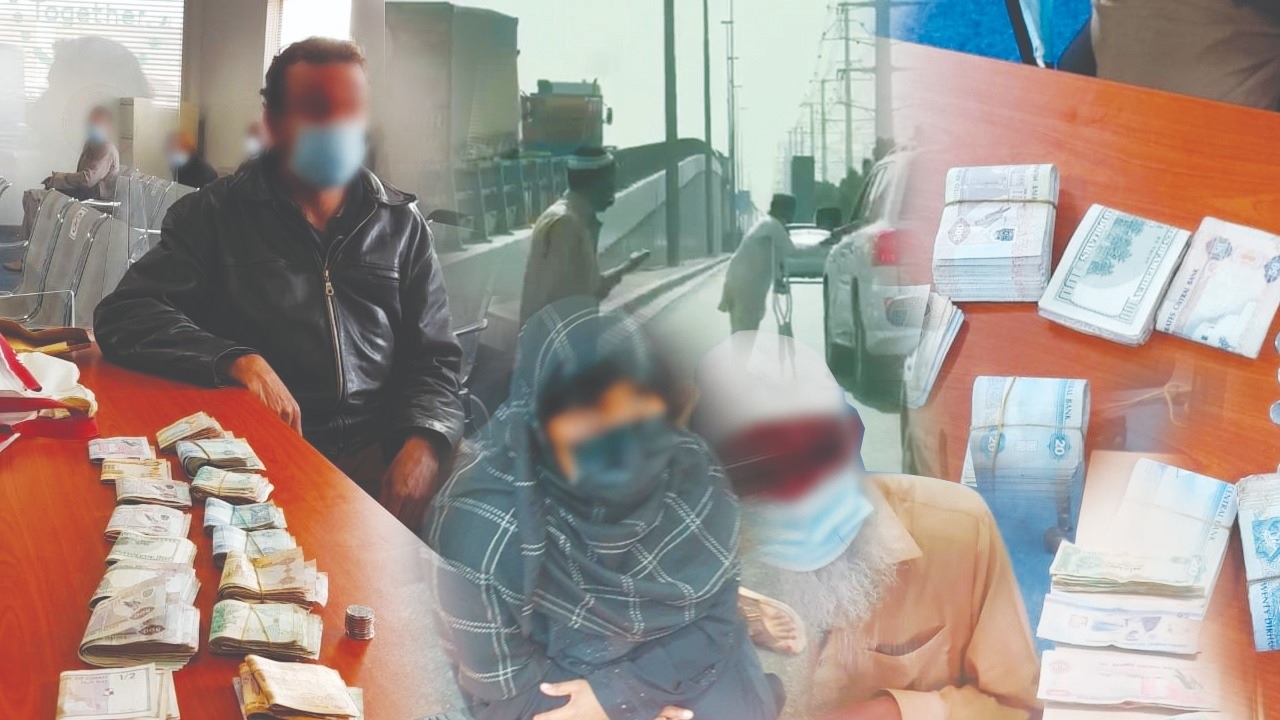A man based in Dubai who made AED 40,000 or over Php 565,000 in a matter of six days made headlines in the UAE for all the wrong reasons. The beggar was able to collect various currencies from different countries that he amassed during the first few days of Ramadan – a period where Muslims and even the entire UAE community extend their help to those in need.
He was among 178 individuals caught begging in Dubai between March 18 and the first week of the holy month. Of this number, Dubai Police state that there were 132 men and 44 women who got arrested.
Brigadier Jamal Salem Al Jallaf, Director of Dubai Police’s General Department of Criminal Investigation, stated that the numbers were higher than in 2021 – when they caught 458 beggars including 311 men and 147 women from different nationalities. He has sought the cooperation of the public to clamp down on these beggars who are otherwise healthy and fit. Some of them were found to have jobs in the country.
“We urge members of the public to report beggars who exploit people’s generosity during the holy month to collect money,” said Al Jallaf.
For his part, Colonel Ali Salim, Director of the CID Anti-Infiltrators Department, said that giving alms to people directly isn’t the right way of helping people in need in the UAE.
“People should not show compassion to beggars’ fake appearances and not deal with them at all. They must instead help police by reporting beggars,” said Col. Salim.
Residents speak
Bianca, an accountant based in Abu Dhabi, shared that she recently encountered an individual who seemed truly in need. However, despite her generous offer to give the man food, he insisted to take cash instead.
“Gusto ko sanang ibigay yung extra kong baong pagkain para sa kanya pero nagulat ako sa lalaki na namimilit na pera na lamang ang ibigay sa kanya. Doon ako nakatunog na hindi ko dapat pagbigyan yung kagustuhan niya,” said Bianca.
Richard from Sharjah said that he has found a way to discern who needs help the most – by simply offering them food instead of cash.
“Madali namang malaman kung talagang nangangailangan. Kasi kung tatanggap sila ng pagkain, ibig sabihin naghihikahos at totoo yung tulong na hinihingi nila sa iyo. Kung pera kasi, kahit five dirhams lang yan o barya, hindi ko malalaman kung saan talaga nila ito gagamitin,” said Richard.
However, Colonel Ahmed Al Adidi, Acting Director of Anti-Infiltrators at the General Department of Criminal Investigation in Dubai Police, still discourages such practices of giving food or other things ‘in-kind’ since they can still encourage the street racketeers. As an alternative, Al Adidi advises the public to go through proper channels.
“There are people who attempt to justify their illegal behaviour with their financial desperation. However, according to Federal Law No. 9 of 2018 on Anti-begging, this is illegal and punishable. There are official and charitable entities and authorities ready to help the needy, which we, at Dubai Police urge whomever in need of financial aid to turn to,” said Al Adidi.
Strict penalties
In the UAE, begging is considered a crime under Article 475 of Federal Decree Law No. 31 of 2021, which highlights that individuals caught asking for alms in monetary or in-kind will be sentenced to up to three months in jail, with a minimum fine of AED 5,000.
“The begging offense shall be considered an aggravating circumstance if the beggar is healthy and has an apparent source of living; if he/she pretends to be injured or have a permanent disability; pretends to do a service for third party; or uses any means of deception in order to influence others and appeal to their affection,” the law reads.
While there are no provisions that penalize individuals who provide monetary or in-kind donations directly to those in need, UAE authorities have been launching annual awareness campaigns to discourage the public from this practice.
Authorities advise that the public can easily report beggars by calling 901, or through the Dubai Police Smartphone app by accessing their “police eye” services.
“Begging poses a serious threat to the safety and security of our society. We take the matter seriously as begging is linked to an increase in thefts and pickpocketing,” added Al Adidi.
He added that there are also cases of ‘tourist beggars’ who just visit the UAE during Ramadan to beg on the streets to earn money. And some even recruit people from other countries to operate a network of individuals posing as beggars – an act that’s heavily punishable under the law.
“Those operating professional gangs of beggars or recruiting people from outside the country to work as beggars face a jail term of not less than six months and a minimum fine of AED 100,000,” said Al Adidi.




